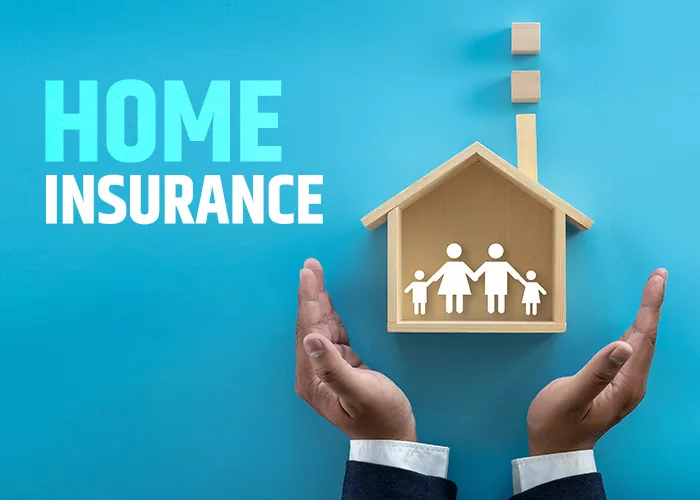Mobile home insurance is essential for protecting your investment and ensuring peace of mind. This guide will delve into how mobile home insurance works, what it covers, and the factors that influence your policy.
1. What is Mobile Home Insurance?
1.1. Definition and Purpose
Mobile home insurance is designed to protect owners of manufactured or mobile homes against various risks, including damage, liability, and theft. It functions similarly to homeowners insurance but is tailored to the unique needs of mobile homes.
1.2. Importance of Mobile Home Insurance
Owning a mobile home presents specific challenges and risks, making insurance vital for financial protection and peace of mind.
2. Types of Mobile Home Insurance Policies
2.1. Actual Cash Value (ACV) Policies
ACV policies provide coverage based on the current market value of your mobile home, factoring in depreciation. This type of policy is generally more affordable but may leave you underinsured.
2.2. Replacement Cost Policies
Replacement cost policies cover the expense to replace your mobile home with a similar one without accounting for depreciation. This ensures you have adequate funds to rebuild or replace your home.
2.3. Comprehensive Policies
Comprehensive policies combine elements of both ACV and replacement cost, offering a broader range of coverage. They may include additional protections against specific risks.
3. Coverage Options in Mobile Home Insurance
3.1. Property Coverage
3.1.1. Physical Structure
This coverage protects the actual mobile home from damages due to various perils, such as fire, storms, or vandalism.
3.1.2. Personal Property
Personal property coverage safeguards your belongings inside the mobile home, including furniture, appliances, and personal items.
3.2. Liability Coverage
Liability coverage protects you against claims from injuries or damages that occur on your property. It can cover legal expenses and settlements if you are sued.
3.3. Additional Living Expenses (ALE)
ALE coverage provides funds for temporary living expenses if your mobile home becomes uninhabitable due to a covered event. This may include hotel stays and other living costs.
3.4. Detached Structures
This coverage protects other structures on your property, such as sheds or garages, against damage.
See Also: The Comprehensive Guide to Landlord Insurance
4. Exclusions in Mobile Home Insurance
4.1. Common Exclusions
Mobile home insurance policies often exclude specific risks, including:
Flood damage (typically requires separate flood insurance)
Earthquake damage (often needs additional coverage)
Wear and tear or maintenance issues
4.2. Understanding Policy Limitations
It’s crucial to understand the limitations of your policy to avoid surprises during a claim.
5. Factors Affecting Mobile Home Insurance Premiums
5.1. Location of the Mobile Home
5.1.1. Natural Disaster Risks
Properties in flood-prone or hurricane-prone areas may face higher premiums due to increased risk.
5.1.2. Crime Rates
Areas with higher crime rates may lead to increased insurance costs due to a higher likelihood of theft or vandalism.
5.2. Age and Condition of the Mobile Home
Newer mobile homes often qualify for lower premiums, while older homes may face higher rates due to increased risk of damage.
5.3. Coverage Amounts and Deductibles
Higher coverage limits and lower deductibles generally result in higher premiums. Finding the right balance is key to affordability.
6. How to Purchase Mobile Home Insurance
6.1. Assess Your Coverage Needs
Evaluate your specific needs based on the value of your mobile home, personal property, and any additional risks associated with your location.
6.2. Researching Insurance Providers
6.2.1. Online Reviews and Ratings
Look for reputable insurers with positive reviews from other mobile home owners. Research their financial stability and customer service ratings.
6.2.2. Comparing Quotes
Obtain quotes from multiple providers to compare coverage options and premiums.
6.3. Understanding the Application Process
6.3.1. Providing Necessary Information
Be prepared to provide details about your mobile home, including its age, condition, and location, during the application process.
6.3.2. Online vs. In-Person Applications
Many insurers offer online applications, but some may prefer an in-person consultation for complex situations.
7. The Claims Process for Mobile Home Insurance
7.1. Filing a Claim
7.1.1. Documentation Required
Gather necessary documentation, including photos, receipts, and any police reports for theft or vandalism.
7.1.2. Timeliness
File your claim as soon as possible to ensure timely processing. Delays can complicate the claims process.
7.2. Claims Adjustments
7.2.1. Understanding the Adjuster’s Role
An insurance adjuster will assess the damage and determine the amount covered under your policy.
7.2.2. Disputes and Appeals
If your claim is denied or the offered settlement is insufficient, understand the process for appealing the decision.
8. Tips for Reducing Mobile Home Insurance Costs
8.1. Bundling Insurance Policies
Consider bundling your mobile home insurance with other policies, such as auto insurance, for potential discounts.
8.2. Increasing Your Deductible
Opting for a higher deductible can lower your premium, but ensure you can afford the out-of-pocket expense in case of a claim.
8.3. Improving Home Security
Enhancing your mobile home’s security features can lead to lower premiums. Consider installing security systems or improved locks.
9. Understanding State Regulations
9.1. State-Specific Insurance Requirements
Research your state’s specific regulations and requirements for mobile home insurance. Some states may mandate minimum coverage amounts.
9.2. How Regulations Affect Premiums
State regulations can influence premiums, coverage options, and the types of policies available.
10. Conclusion
Mobile home insurance is a crucial investment for protecting your property and assets. By understanding how it works, the types of coverage available, and the factors affecting premiums, you can make informed decisions. Regularly reviewing your policy ensures that you have adequate protection and peace of mind as a mobile home owner.
This outline provides a comprehensive framework for a detailed article. If you need further elaboration on specific sections or additional content to reach the desired word count, feel free to ask!




















